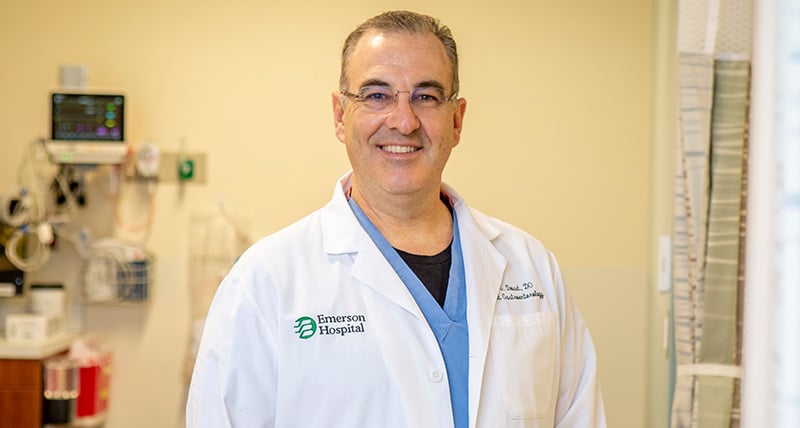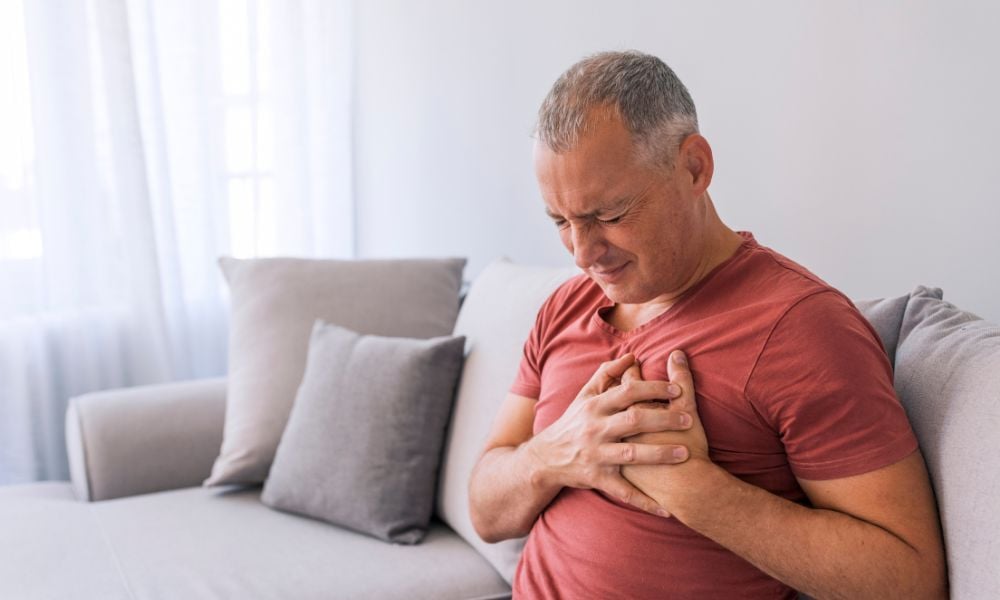Screening Colonoscopies: What We Wish Everyone Knew

John Dowd, DO, Emerson Health Gastroenterology
I have performed more than 20,000 screening colonoscopies during my 22 years as a gastroenterologist. I see how colonoscopies can and do save lives. I wish everyone knew that. If they did, we would save many more lives. Unfortunately, colon cancer is the second leading cause of cancer death for women and men combined.
Approximately one in 20 people will develop colon cancer if they do not undergo screening. Screening for colon cancer has made a significant difference in reducing disease and death since widespread screening was adopted about 20 years ago.
The Gold Standard Does Double Duty
Colonoscopy is the most effective screening for colon cancer because it can detect early-stage cancer before symptoms occur and when treatment will be most productive. Colonoscopies are considered the “gold standard” for colon cancer screening. Not only do they detect colon cancer at an earlier stage, but your gastroenterologist can find and remove precancerous polyps during the procedure before they turn into cancer.
Colon cancer rarely causes symptoms in early stages. Patient outcomes are strongly linked to stage; thus, early detection, often before symptoms develop, is crucial for the best outcomes.
According to the Centers for Disease Control and Prevention, most people should have their first screening colonoscopy when they turn 45. However, patients with inflammatory bowel disease, such as Crohn’s or ulcerative colitis, a family history of colorectal cancer or polyps, or symptoms such as blood in their stool or a persistent change in bowel habits should be screened sooner.
A Patient’s Story
Richard Knapp, a patient of mine, shares his experience in the hope that it will encourage others to make an appointment for their colonoscopies.
“I put off my screenings for nearly twenty years. I had my first colonoscopy at age 64 because my stomach was bothering me. Cancer was found. Thankfully, after surgery to remove some of my colon and twelve rounds of chemotherapy, my prognosis is good, and I am back to my regular life. I realize I am lucky; not everybody is. I always tell people: ‘Get your colonoscopy when it is time to do it. Do not put it off. Do not ignore the colonoscopy.’”
Talk with your physician or gastroenterologist and book your appointment today — you will be glad you did.
Schedule an Appointment
Please call 978-287-3835 to request an appointment with Emerson Health Gastroenterology for a screening colonoscopy if you meet one of the following criteria:
- At least 45 years old and have never had a colonoscopy screening
- At least 40 years old and have a personal or family history of colorectal cancer or colorectal polyps
- A history of ulcerative colitis or Crohn’s disease
- A genetic syndrome such as familial adenomatous polyposis (FAP) or hereditary non-polyposis colorectal cancer (Lynch syndrome)
If you have already had a colonoscopy screening, check with your doctor to determine when you are due for your next one.
Emerson Health Gastroenterology is accepting new patients for screening colonoscopies and digestive health concerns. Please call 978-287-3835 to request a new patient appointment.



